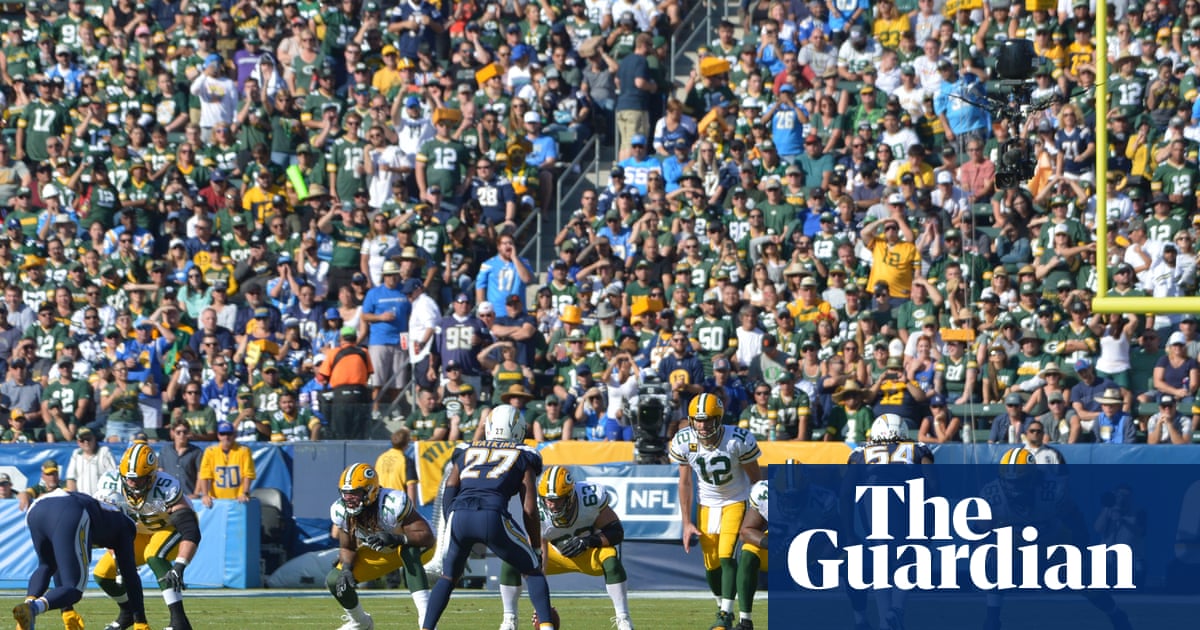This week the Chargers’ owner denied his team will relocate to London. But such rumors are unsurprising when home support struggles

The
Los Angeles Chargers returned to southern
California on Sunday after playing the previous two weeks on the road, but it didn’t make much difference. Home-field advantage doesn’t really apply to the Chargers, not when visiting fans routinely make the team feel like they’re behind enemy lines in their own stadium. That was the case again on Sunday, when the Chargers hosted the Green Bay Packers. The predominant color in the stands was the green of the visitors, and the cheers rang out louder for Aaron Rodgers than Philip Rivers. The home team won, convincingly at that, but most people left the stadium disappointed.
It has become one of the peculiar features of the
NFL calendar since both the Chargers and Rams relocated to Los Angeles in 2017, marking a reunion between America’s second-largest market and its most popular sporting league: more often than not, the teams’ home games look and sound like home games for the opposition. Chargers players were showered with boos when they took the field against the visiting
Philadelphia Eagles two years ago. The Rams got the same treatment last season at home against the Packers. Both Rivers, the Chargers quarterback, and Rams quarterback Jared Goff have regularly been forced to use a silent count to combat the noise generated by the away side’s fans, typically an unnecessary measure to take for a team playing at home.